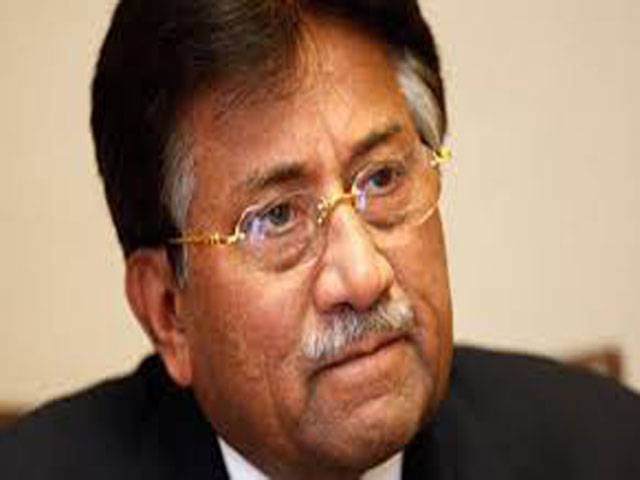ISLAMABAD - The Special Court on Friday reserved judgment on former President General (retd) Pervez Musharraf's plea to include other persons, including ex-PM Shaukat Aziz and ex-COAS General (retd) Ashfaq Pervaiz Kiyani, in the high treason case.
A three-judge Special Court headed by Justice Faisal Arab was hearing the high treason case against Pervez Musharraf under Article 6 of the Constitution.
Faroogh Naseem, in rebuttal to the prosecution arguments, said that one person cannot proclaim Martial Law in the country, but it was a collective act. He said at the time of proclamation of emergency Pervez Musharraf was wearing two hats, adding he imposed emergency on 3rd November 2007, and lifted on 15th December 2007 as President.
The defence counsel submitted the DVD along with the transcript of former Prime Minister Shaukat Aziz press conference held on 4th November 2007, and was aired by a private TV channel, a few months ago. He also submitted former Punjab governor Lt-Gen (retd) Khalid Maqbool's press statement, in which he had said that Musharraf consulted him regarding proclamation of emergency.
Upon the objection of Prosecutor Tariq Hassan, the court refused to accept the DVD and the ex-Punjab governor press report. The court also said it would not consider the new arguments given by the defence counsel in the rebuttal.
Arguing his case, Farogh Naseem contended that when the abettor, conspirator and aiders have been mentioned in the Article 6(2) of the Constitution then all the persons who endorsed and supported the Musharraf's 3rd November action should also be held for the substantive offence. "If there is no fair trial then there should be no trial", he said and prayed that his application be accepted.
He said in the oath of minister, state minister and parliamentarians it has been written that they would preserve, protect and defend the Constitution of Pakistan, while the Article 5 of Constitution talks about loyalty and obedience to the state from every citizens. He argued when the then National Assembly passed resolution in favour of emergency and the then cabinet endorsed the Musharraf's 3rd November action then they also had violated their oath and thus became aiders and abettor.
He said the Supreme Court in Asghar Khan case had declared that unlawful orders should not be obeyed. He said there should be no selective trial and in the interest of the justice other persons should also be included in the case.
Farogh Naseem also contended that the Special Court in its order dated 8th May 2014 had said that they would after examining the record and not evidence would decide about whether other persons should be included in the case.
The court after hearing the arguments reserved the order on the application, which would be announced on 21st November.
Friday, April 26, 2024
Court reserves verdict on Mush plea to include others
High treason case

12:32 PM | April 26, 2024
11:26 AM | April 26, 2024
China wants ‘just, lasting’ solution to Palestine issue
1:21 PM | April 26, 2024
Three-day global science-policy forum: Socially inclusive solar irrigation systems
11:02 AM | April 26, 2024
DG kicks off tree plantation drive in ICT
April 26, 2024
11 outlaws arrested in district raids
April 26, 2024
Economic Challenges
April 26, 2024
No Compromise
April 26, 2024
Strength and Solidarity
April 26, 2024
Musk vs Australia
April 25, 2024
Reforming Rehab
April 25, 2024
Photon power
April 26, 2024
Justice prevails
April 26, 2024
Ending animal suffering
April 25, 2024
AI governance
April 25, 2024
AI concerns
April 25, 2024
ePaper - Nawaiwaqt
Advertisement
Nawaiwaqt Group | Copyright © 2024





